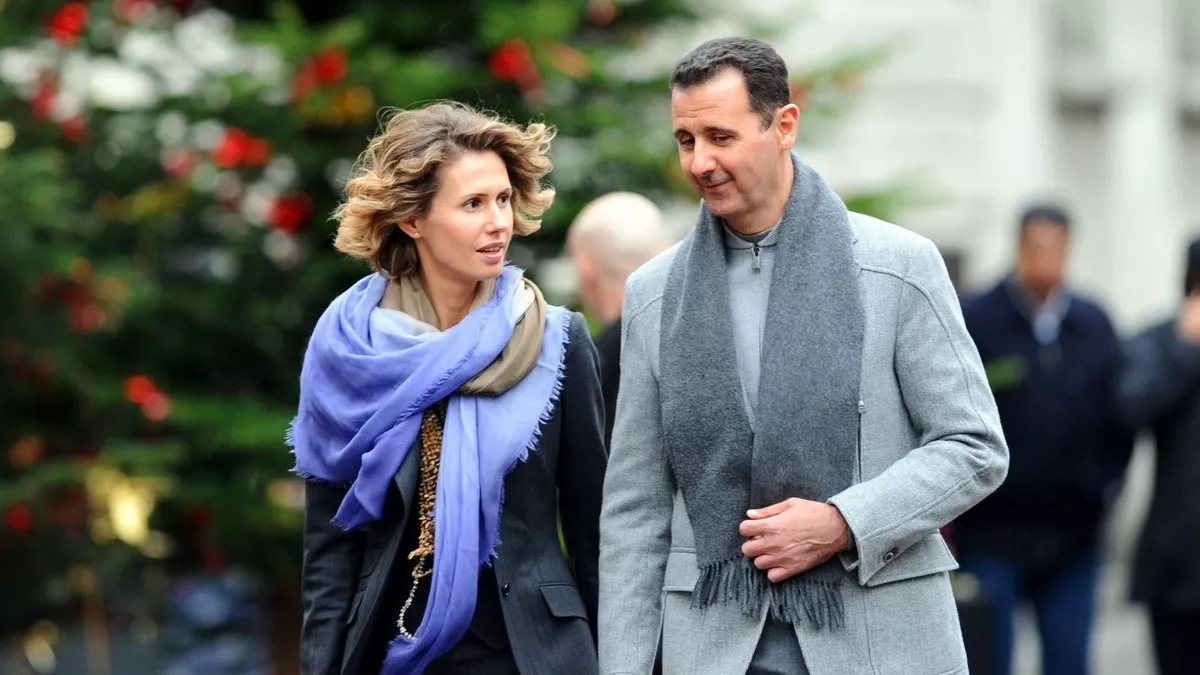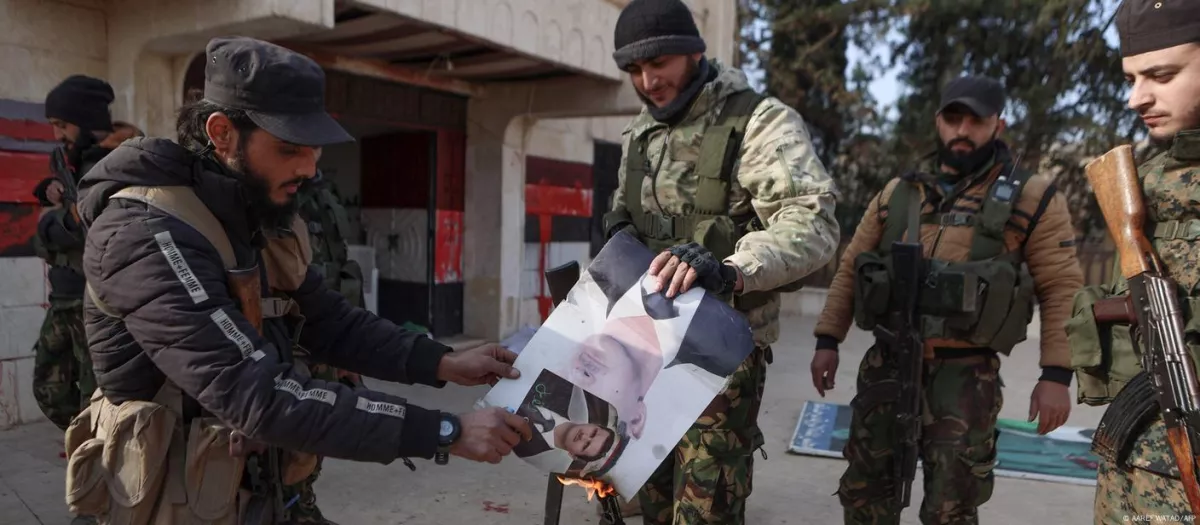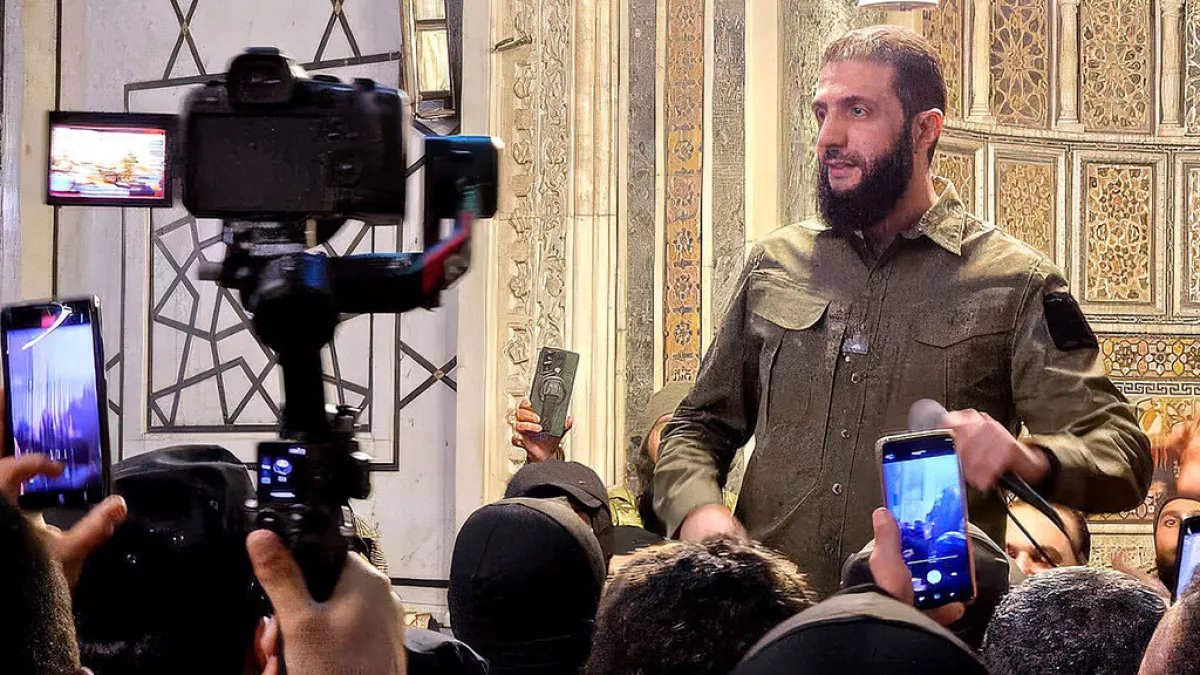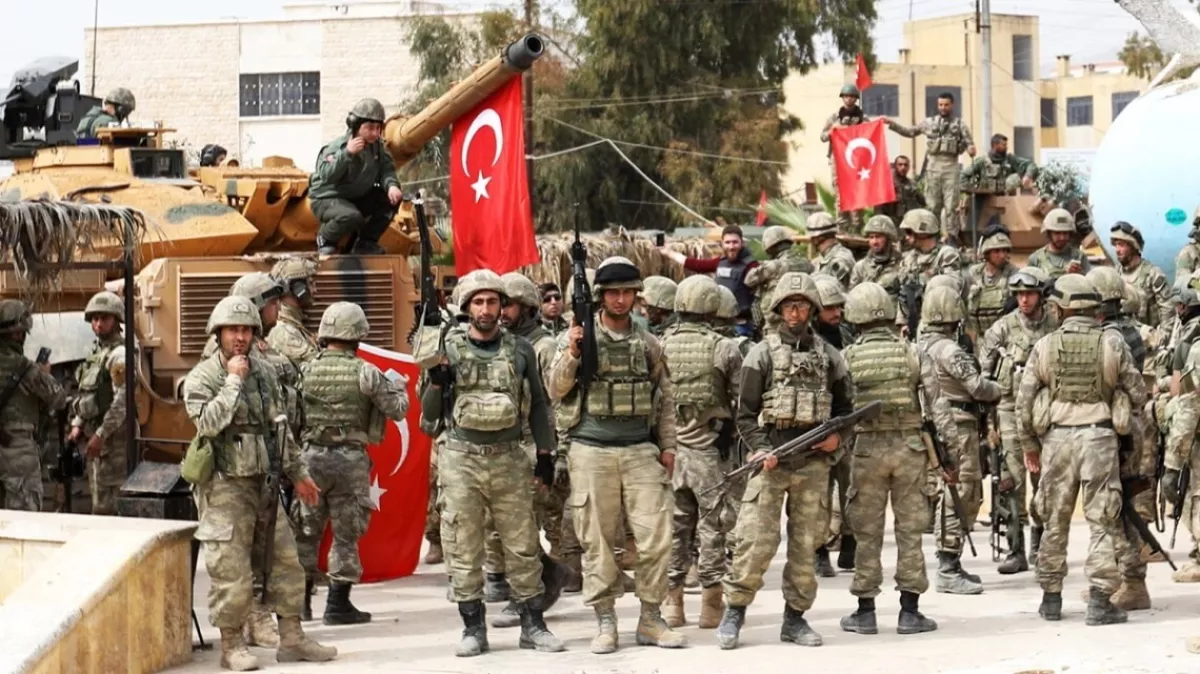Syria: Jolani’s diplomatic puzzle Balancing power, alliances, and sanctions
When on November 27 the group Hayat Tahrir al-Sham (HTS) began its offensive on Aleppo, no one, even the most experienced experts, could have imagined that in just 11 days the regime in Damascus would fall.
The crushing defeat of the Assad forces was the result of several processes that caused a cumulative effect. Over the years, the government army had degenerated into gangs that robbed the local population, competed with each other for the right to collect tribute from the people, and practically abandoned the training of new soldiers — such an army was capable of very little. On the other hand, HTS had created a mobile army over the past four years, managed by a general staff, with highly motivated and well-trained assault units, modern communication equipment, and teams skilled in drone warfare.
Finally, the forces of Assad’s allies found themselves in a difficult position, as they were diverted by other matters. Russia focused its efforts on Ukraine, the Lebanese Hezbollah, which had been defending Aleppo from HTS rebels, was forced to withdraw its troops to counter Israel, suffering heavy losses. Iran, also embroiled in a conflict with Israel, could not send its forces into Syria, as they would have been immediately destroyed by the Israeli Air Force, which maintained total air superiority.
Economic collapse
Having taken Damascus, the new authorities faced the same problems as the Assad regime, with additional new challenges. According to the UN, over 90 per cent of Syrians live below the poverty line. Many have issues accessing basic services, including food, healthcare, and electricity. Some infrastructure was destroyed during the civil war that has been ongoing since 2011. The country has millions of displaced persons, while other millions of Syrian refugees, who have found refuge abroad, are considering returning home. Syria is under US sanctions, including the harshest one — the Caesar Act, which makes foreign investment virtually impossible. The treasury is empty, and the new government has already declared it cannot pay public sector workers. Bashar al-Assad and his family, who fled the country, took billions of dollars with them.

But the growing crisis is also tied to Syria losing two key sponsors. Russia had been exporting cheap bread to the country, but these supplies have now ceased. Iran had been supplying the regime with tens of thousands of barrels of oil per day, but it too has halted deliveries, causing the closure of oil refineries. Already devastated by war, Syria now faces new threats in the form of an impending famine and a fuel crisis.
Military-political crisis
In addition to the financial and social crises, HTS faces equally serious or even more pressing military-political challenges. The new Syrian leader, Abu Mohammed al-Jolani, or as he calls himself today, Ahmed al-Sharaa, does not control a significant portion of Syria’s territory.
Kurdish armed formations, led by veteran officers of the PKK (Kurdistan Workers' Party), control about a third of Syria’s northern and eastern regions. US military bases are also located there. Around 2,000 US troops are present in the areas controlled by the Kurds, training and arming Kurdish forces, as well as providing protection.
Since the PKK is also waging a terrorist war for "Kurdish self-determination" on Turkish territory, Türkiye has concentrated tens of thousands of its troops in Syria and along its borders. Units of the Turkish army, along with the affiliated Syrian group, the Syrian National Army (SNA), have long controlled the northern regions of the country and are fighting against the pro-Kurdish administration. The HTS regime has no control over these areas and groups.
In the south of the country and in the suburbs of Damascus, various brigades, which previously fought against Assad, operate under the banner of the Free Syrian Army (FSA), with some of them considering HTS as their enemies.
Israel has advanced in several areas of Syrian territory, where its forces have taken up more advantageous positions. At the same time, the Israeli Air Force has struck 500 military targets abandoned by Assad’s army, destroying stockpiles of heavy weapons, combat aircraft, and naval assets to prevent them from falling into the hands of the new government, which Israel does not trust.
The new rulers of Syria have the most motivated and disciplined armed formations, but their numbers are unlikely to exceed 20-30 thousand. This is merely the most powerful of all the factions in Syria, but no more than that. Jolani will not have the strength to control all of Syria relying solely on military power.

The Assad regime received part of the oil it needed from Iran and part of the wheat from Russia. All of this was provided to the regime on preferential terms, although the Iranians were, of course, purchasing various resources and enterprises in the hope of eventually recouping their investments. But today, the HTS regime receives neither Iranian oil nor Russian bread. This could lead to famine. In such a situation, maintaining power solely through violence in a country like Syria, filled with weapons and armed groups, is difficult and, in the long run, impossible.
Therefore, Jolani, a former student at the University of Damascus who studied media studies there, had to change his military uniform for a suit. His recent appearance in front of the cameras with his wife made a particular impression on the public; her headscarf merely hinted at a hijab, but it was unlikely to have been one.
Jolani's diplomacy
The leadership of HTS has been forced to change not only its image but also its policies towards foreign states and its own minorities (the majority of Syrians are Sunni Muslims, to which HTS belongs, while minorities include Christians, Alawites, and Shiites). In the past, HTS had conflicts with minorities. Today, HTS fighters prohibit attacks on Christians. In cities with Shiite populations, food is being distributed. They do not want pogroms, massacres, or chaos that would undermine HTS’s power within Syria and destroy the fragile trust that international powers have in the new leaders of the country and their ability to restore order while sitting in Damascus.

Jolani says he has abandoned the idea of international jihad and intends to focus on state-building in Syria. Everyone expected HTS to attack Russian military bases — after all, Moscow had recently helped Assad and bombed rebels in Idlib, where the leadership of the group, including Jolani, was based. But today, his fighters are guarding Russian bases, and he himself is negotiating with the Kremlin. Nothing personal, just business! Yes, yesterday we were fighting, but today there's no point in doing that. You want to keep the bases? Fine, but what will you give in return? We need bread, and we have nothing to pay for it...
Although Jolani relies on alliances with Türkiye and Qatar — two allies that have financed and strengthened his army for years — he wants to maintain at least some elements of independence. For this, he needs support from various countries. He is negotiating with Russia, the Americans, and the Europeans. He says the most important thing the new regime needs is the lifting of sanctions.
Balancing the contradictory system of international relations for the new Syria with its partners will be difficult. The European Union, through the words of its foreign minister, Kaja Kallas, stated that Europeans are ready to cooperate with Syria and lift sanctions only if there are no Russian military bases in the country.
The Americans have put forward their demands in response to Jolani's request. They want the Syrian government to show tolerance towards their ally, Israel. But how can this be achieved when Israel has long annexed part of Syrian territory (the Golan Heights), and today its forces are advancing deeper into Syria? However, Jolani cannot fight Israel today anyway. Moreover, the US wants an inclusive secular government involving national and religious minorities, including Kurds and Alawites. This is unlikely to suit Türkiye, which occasionally conducts local operations (together with the SNA) against the PKK in northeastern Syria.
Türkiye itself is ready to offer much to the new Syria. After all, Ankara has achieved a strategic victory of immense significance. Its allies, HTS and the SNA, removed Bashar al-Assad's regime — an Iranian puppet with ties to Russia — from Syria. Turkish President Erdoğan wants a friendly government in Damascus. He is also interested in the return of millions of Syrian migrants, whose presence in Türkiye is causing significant irritation among parts of the population.
Türkiye intends to dismantle the Kurdish enclave controlled by an autonomous administration linked to the PKK. Ankara expects Jolani's cooperation on this issue. What will Jolani do? The demands of the US and Türkiye are directly opposite...
Today, HTS is not focused on war with the Kurds. Moreover, as long as US forces are protecting the Kurdish administration, nothing can be done about it. Therefore, Jolani is unlikely to attack the Kurds in the foreseeable future. On the other hand, the new administration of Donald Trump, who is set to return to the White House in January next year, may withdraw US forces from Syria. Trump sympathizes with Erdoğan and has long intended to leave Syria, outsourcing it to Ankara. If this happens (which is not certain, as Trump is unpredictable), HTS will likely join Türkiye in operations against the Kurds. No government in Damascus will agree to hand over Syria’s breadbasket and oil fields to the Kurds.
Türkiye has other, quite extensive plans for Syria as well. It wants to sign a series of military agreements with Jolani's government, similar to the maritime boundary agreement it previously concluded with Libya. Hulusi Akar, the head of the Turkish parliamentary defence committee and former minister of defence, spoke about the possibility of a maritime agreement with Syria during an interview on the parliamentary TV channel. According to him, such an agreement could outline maritime jurisdiction zones in the Mediterranean.
In 2019, Ankara signed a similar agreement with Libya, specifically with the Government of National Unity (GNU) in Tripoli, which is internationally recognized. This caused sharp disputes with Egypt, Greece, and Cyprus, which considered that Türkiye and Libya had claimed excessive portions of the eastern Mediterranean, including areas rich in gas.
What might a new agreement with Damascus bring if signed? Akar also mentioned that the use of Syrian airfields, maritime facilities, and logistical infrastructure would accelerate Türkiye’s efforts to restore and develop Syria. He emphasized that a potential maritime boundary agreement could serve as a cornerstone for deepening ties, positioning Türkiye as a key player in the process of Syria’s reconstruction and regional stability.

Another megaproject that could bring significant funds to Syria is the Qatari-Turkish gas pipeline. Recently, Ankara announced plans for this pipeline, which would transport Qatari gas through Saudi Arabia, Jordan, Syria, and Türkiye to Europe.
At the same time, information has leaked to the international press that Türkiye is offering its experts to assist with the operations of all departments within the new HTS government. In other words, according to the plan, Turkish experts will oversee the work of all Syrian ministries. This, along with other Turkish-Qatari projects, could aid in the post-war reconstruction of Syria while simultaneously greatly enhancing Türkiye’s influence in the country. But will Jolani agree to this? And what about the American sanctions blocking investments in Syria? Will Washington lift them?
Fragile balance of power
The leadership of HTS aims to strengthen its control over Syria. However, it cannot survive without foreign financial inflows in the context of the economic collapse. Therefore, it intends to balance between Türkiye, the United States, the European Union, and Russia in order to secure aid from them. Moreover, the leadership of HTS seeks to ensure that the influence of these countries mutually limits and balances each other.
Jolani hopes to maintain relations with all parties, avoid conflict with anyone, achieve the lifting of sanctions, attract investors and humanitarian aid to the country, and remain an independent political actor.
But how can he reconcile the Turkish-Qatari gas pipeline, maritime agreements in the Eastern Mediterranean with the desire of the United States to support the Kurds and Greece in their disputes with Türkiye? How can he maintain Russian military bases and the flow of cheap bread when the European Union may lift sanctions only in exchange for the removal of those bases? This is the puzzle that Jolani must solve.








